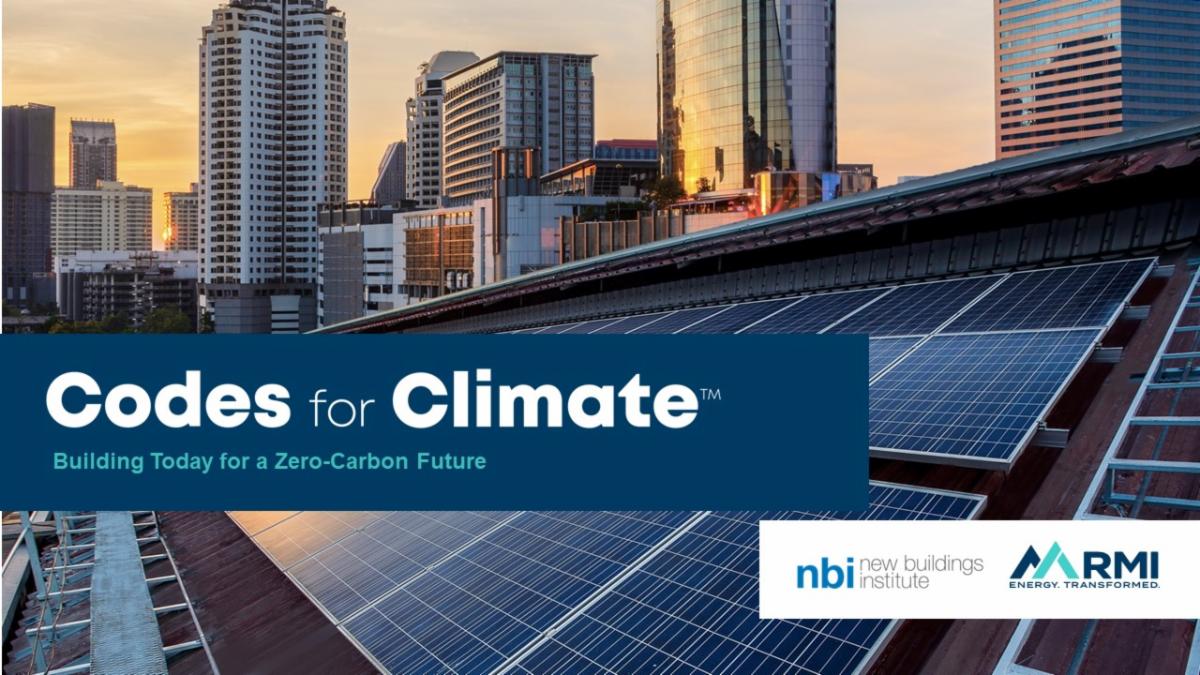Codes for Climate offers states and cities a path for building decarbonization
A new joint initiative from NBI and RMI helps states and cities advance building codes and policies to achieve a zero-carbon future.

As states and cities seek to fulfill their climate goals, it’s not clear that national code-making entities will keep pace with the efficiency stringency and building decarbonization measures that are necessary. Buildings currently represent 39% of the carbon emissions in the United States from operational and embodied sources. As such, solutions for climate change must target the built environment.
New Buildings Institute (NBI) and RMI announced today a new initiative to support the development and adoption of climate-aligned new construction codes and existing building performance standards for states and cities that are advancing beyond what the national model codes are offering.
Codes for Climate™ aims to deliver technical, policy, and implementation support for jurisdictions calling for Paris Agreement-aligned codes, standards, and policies to keep temperature rise under 1.5°-degrees Celsius.
“To reach the necessary emissions reductions by 2030, the industry needs a climate focused code now,” said Michael Furze, director of Washington State Energy Office. “Washington state has shown this work can be done, and I believe that now is the time to secure the health, economic, and resilience benefits of aligning building codes and standards with climate goals, and we support the new Codes for Climate initiative to do just that.”
Join us to talk about the future of model energy codes
Work under Codes for Climate will focus on continuing to engage with model code development to achieve the climate goals of U.S. states and cities. In preparation for the 2024 IECC public comment period and committee work beginning, NBI and RMI will host a post-mortem and planning session to hear from governmental members and advocates. Key topics of discussion will include successes and challenges of the 2021 development cycle, 2024 development targets, expansion of existing buildings requirements, and goals of cities and states that might be realized in the model codes.
This event is planned as the first in a series of engagements with key stakeholders over the 2024 development cycle to discuss and solve for concerns of local governments to deliver climate-aligned building codes. Questions? Contact Sarah Chaney at
sarah@newbuildings.org.








